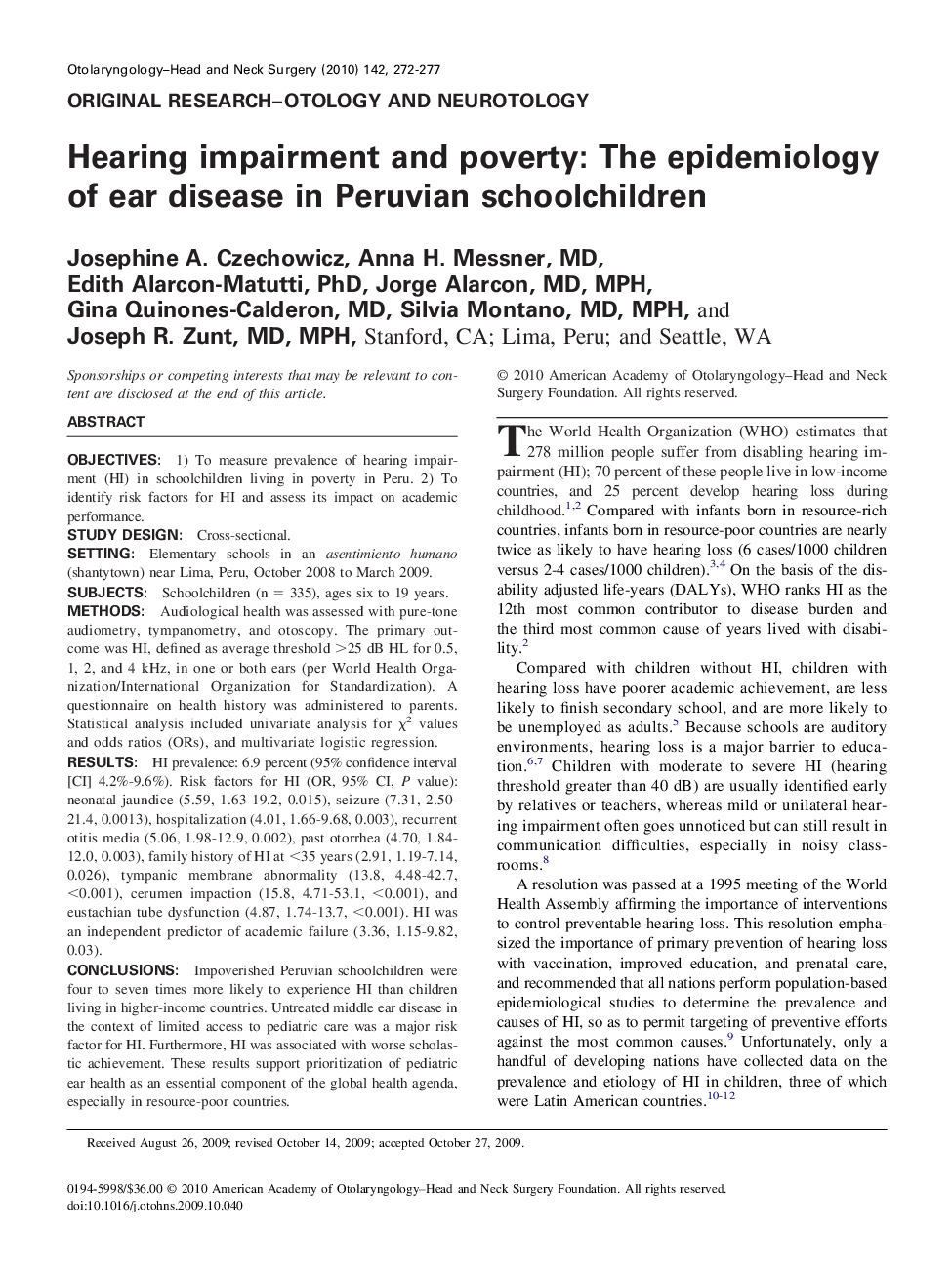| Article ID | Journal | Published Year | Pages | File Type |
|---|---|---|---|---|
| 4125360 | Otolaryngology - Head and Neck Surgery | 2010 | 6 Pages |
Objectives1) To measure prevalence of hearing impairment (HI) in schoolchildren living in poverty in Peru. 2) To identify risk factors for HI and assess its impact on academic performance.Study DesignCross-sectional.SettingElementary schools in an asentimiento humano (shantytown) near Lima, Peru, October 2008 to March 2009.SubjectsSchoolchildren (n = 335), ages six to 19 years.MethodsAudiological health was assessed with pure-tone audiometry, tympanometry, and otoscopy. The primary outcome was HI, defined as average threshold >25 dB HL for 0.5, 1, 2, and 4 kHz, in one or both ears (per World Health Organization/International Organization for Standardization). A questionnaire on health history was administered to parents. Statistical analysis included univariate analysis for χ2 values and odds ratios (ORs), and multivariate logistic regression.ResultsHI prevalence: 6.9 percent (95% confidence interval [CI] 4.2%-9.6%). Risk factors for HI (OR, 95% CI, P value): neonatal jaundice (5.59, 1.63-19.2, 0.015), seizure (7.31, 2.50-21.4, 0.0013), hospitalization (4.01, 1.66-9.68, 0.003), recurrent otitis media (5.06, 1.98-12.9, 0.002), past otorrhea (4.70, 1.84-12.0, 0.003), family history of HI at <35 years (2.91, 1.19-7.14, 0.026), tympanic membrane abnormality (13.8, 4.48-42.7, <0.001), cerumen impaction (15.8, 4.71-53.1, <0.001), and eustachian tube dysfunction (4.87, 1.74-13.7, <0.001). HI was an independent predictor of academic failure (3.36, 1.15-9.82, 0.03).ConclusionsImpoverished Peruvian schoolchildren were four to seven times more likely to experience HI than children living in higher-income countries. Untreated middle ear disease in the context of limited access to pediatric care was a major risk factor for HI. Furthermore, HI was associated with worse scholastic achievement. These results support prioritization of pediatric ear health as an essential component of the global health agenda, especially in resource-poor countries.
